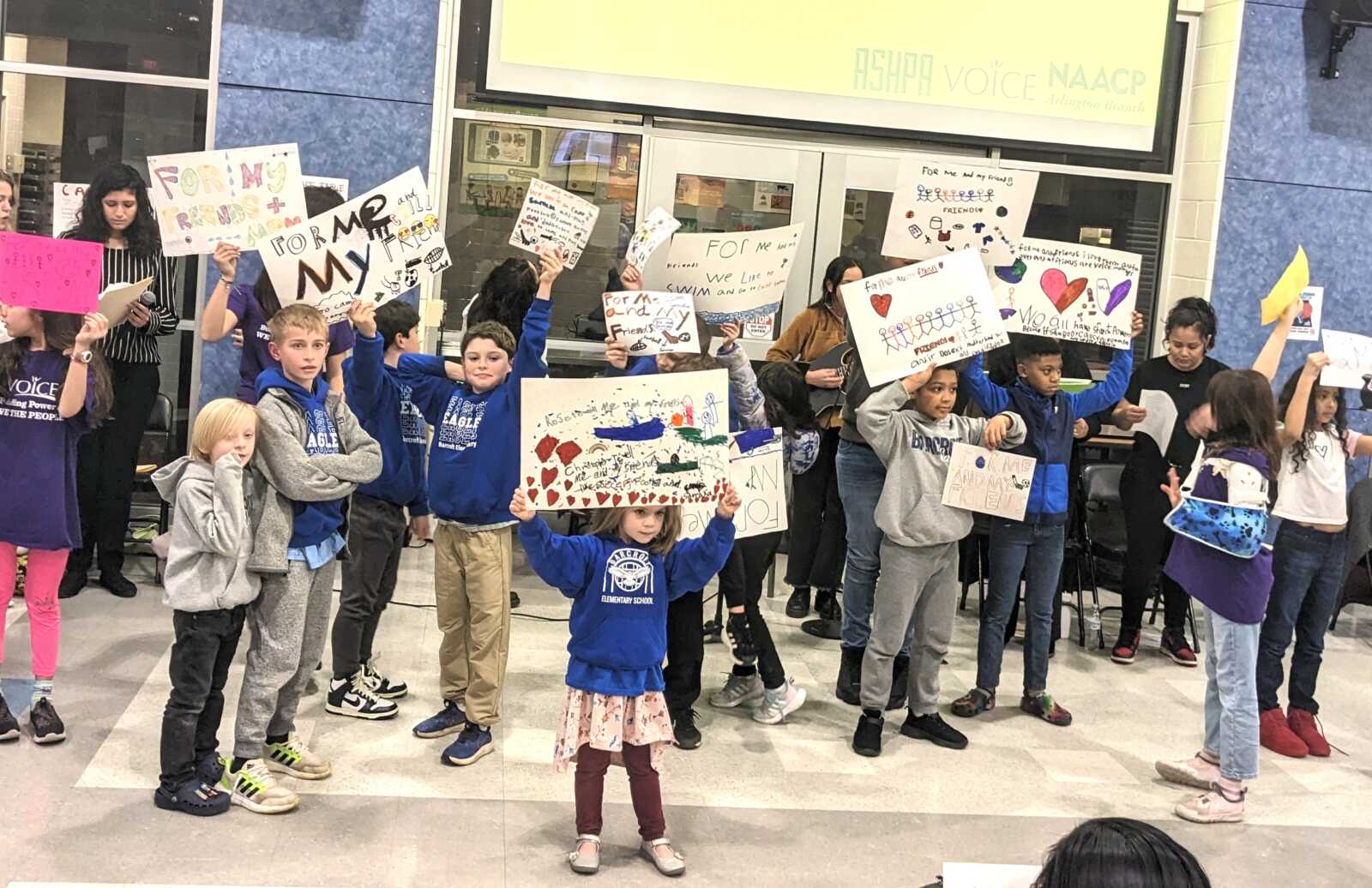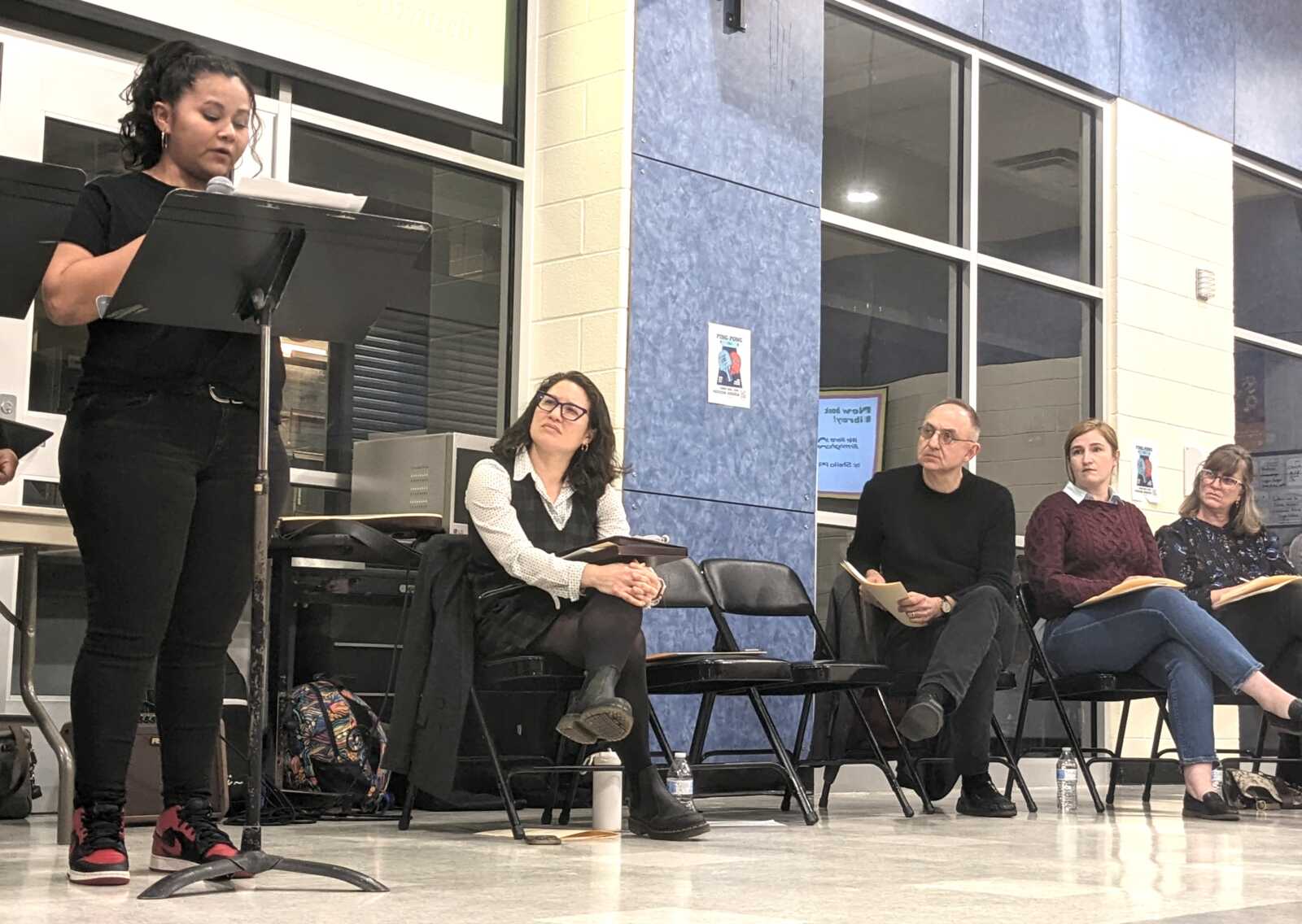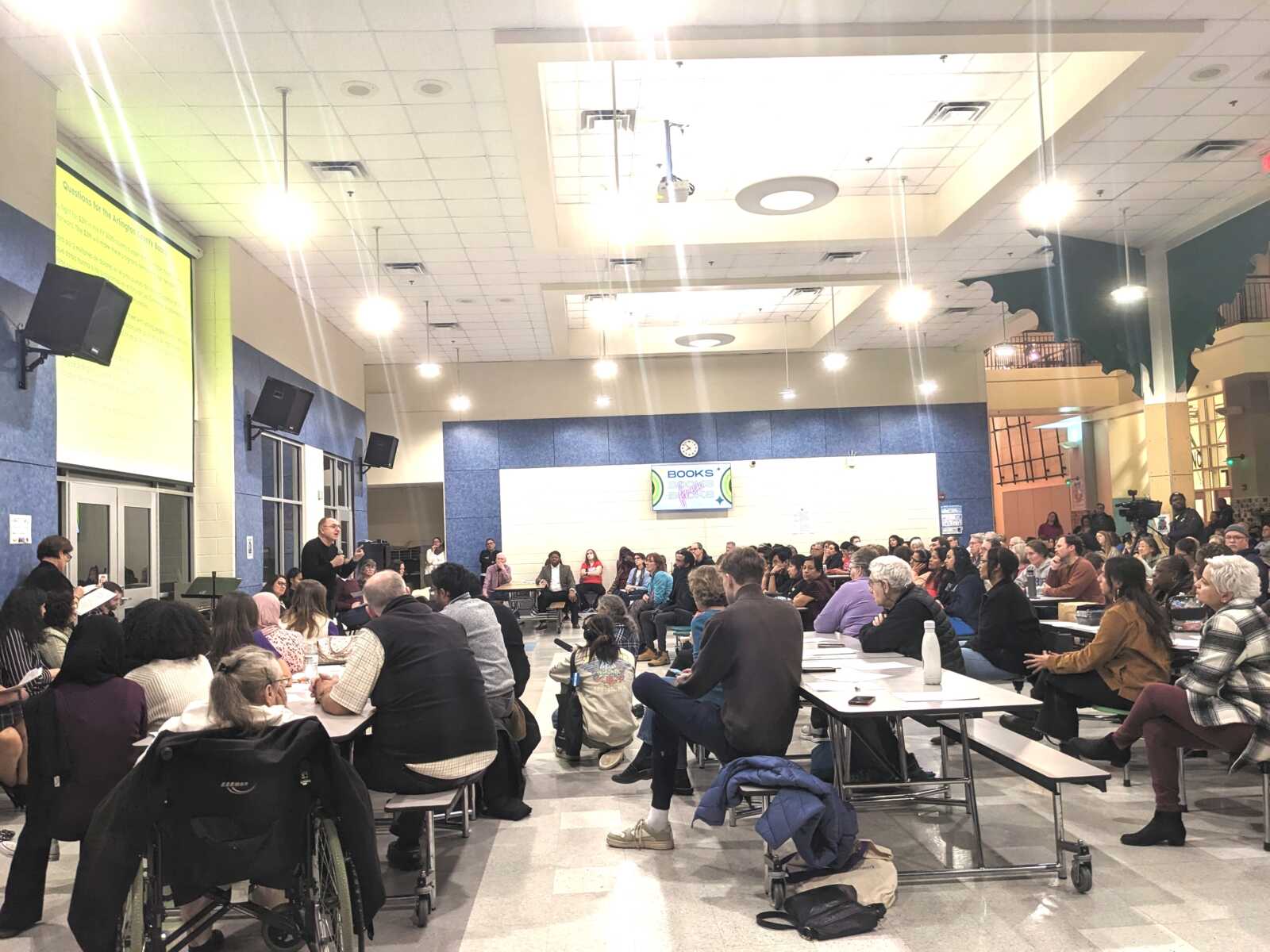(Updated 2/19) Advocates are calling for Arlington County to invest $2 million in additional programs to stop students from dying of drug overdoses.
The mother of an Arlington ninth grader who died of an apparent fentanyl overdose in September joined over 250 others on Wednesday to demand additional funding for free after-school programs. Organizers say a scarcity of accessible, interesting programming makes students more likely to fall into drug addiction.
“We as parents and members of this community ask you to invest in after-school programs,” organizer Janeth Valenzuela, co-founder of the Arlington Schools Hispanic Parents Association (ASHPA), told officials in attendance at Kenmore Middle School. “It is an investment in life, in a better future, in a different destiny for our children. We know from experience that affordable programs at the schools will help.”
Luz Rodríguez, the mother of Jorge Rodríguez, pleaded with Arlington County Board Vice-Chair Takis Karantonis and member Maureen Coffey, who were in attendance, to work to ensure that her son is the last child in Arlington to die from drugs.
“We must all work together to stop this terrible disease that is killing our children,” Rodríguez said in Spanish, which was translated for English speakers.
Karantonis pledged to enter this year’s budget negotiations “with a $2 million mindset.”
“If the price is $2 million, this is the funding that’s needed? Then let’s do it,” said the Board member, who in November carried a motion to increase funding for programs combating teen substance abuse.
Coffey begged off on pledging a specific amount but said she would “fight for significant and ongoing funding.”
School Board members Mary Kadera and Bethany Sutton were also present at the event.
The County Board voted 3-2 in November to set aside $750,000 to build up initiatives relating to drug use among young people. So far, the county has used this money to expand teen programming on the weekends, enhance juvenile case management and increase outreach about existing programs.
Last month, County Manager Mark Schwartz said the Department of Human Services had also hired two additional counselors, one at Washington-Liberty High School and one at Wakefield High School. Jorge Rodríguez attended Wakefield and was the second student at that school to die last year.
Two additional counselors were being onboarded in January to work at Yorktown High School and the Arlington Career Center.
Virginians Organized for Interfaith Community Engagement (VOICE) hosted listening sessions with hundreds Arlington high school students and parents, most of whom were people of color, before making its $2 million recommendation, per a media packet. The funds would allow 200 young people in underserved communities to attend three hours of free programming every day after school.
Students and parents expressed interest in soccer options beyond recreation, travel and school teams. Other areas of interest included art, cooking, tennis, film, photography and podcasting.
Schwartz said in January that the county was “working on” an expanded soccer program, which he expected to go live by late February, in addition to a newly expanded basketball program.
VOICE, alongside ASHPA and the Arlington branch of the NAACP, says it supports more substance abuse education and access to behavioral health professionals. Its media packet says Arlington lacks widespread, relevant education initiatives on this topic, while many students said that accessing counselors and behavioral health professionals is difficult.
For a Wakefield senior named Marina, the need for a better response to the opioid crisis is personal.
Marina started struggling with mental health issues she was just 13. She said it took her years to “retrain my mind” with the help of therapy, medication and a strong support network.
“I’m well aware that every teen is not so lucky,” she said.
Marina, who now works as a volunteer EMT in Prince William County, recalled a conversation she overheard in a school bathroom the day after “one of our first Wakefield overdoses.”
“A group of girls just a few stalls down reeked of weed and talked about the boy who had just passed away,” the high schooler said. “They said, ‘He was one of my best buyers.’”
Last year, 22 people died from opioid overdoses that were investigated by the Arlington County Police Department. That is an increase from 17 deaths the previous year, but a decrease from 28 fatal overdoses in 2021, according to county data.
The county does not publicly report juvenile overdoses. ARLnow asked ACPD last month for an updated number fatal and non-fatal juvenile overdoses, as well as confirmed opioid overdoses on school grounds, which ACPD said it would only provide via a Freedom of Information Act request.
Parent groups have been sounding the alarm about drug use in Arlington Public Schools for more than a year. A twin epidemic of opioid use and mental health issues appears to be driving the trend among teenagers.
The national epidemic of opioid deaths has been blamed, at least in part, on accidental overdoses stemming from fentanyl being added to fake prescription drugs. Users believe they’re taking oxycodone or even the focus-enhancing drug Adderall but instead get a crudely made counterfeit containing a fatal dosage of the highly concentrated synthetic drug.
After Wakefield’s first overdose death last year, parents marched outside the high school demanding action.
Luz Rodríguez said that she previously had no idea how dangerous fentanyl is or how easy it is for young people to access it.
“Please listen,” Rodríguez told county leaders. “My son’s life mattered. I want his death to matter too. Together, we can help to prevent future death. Please act now.”




